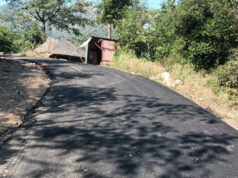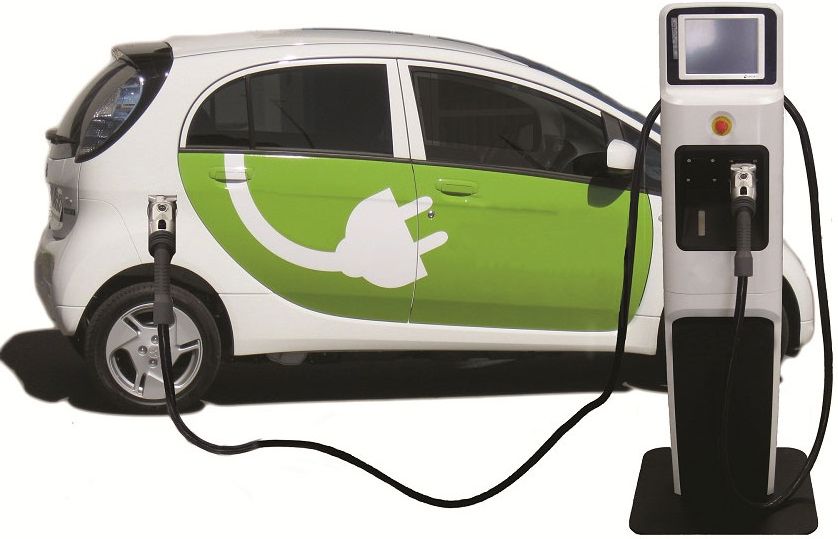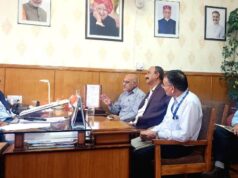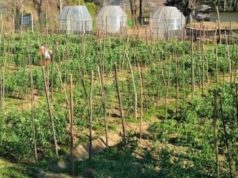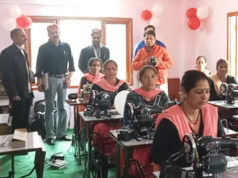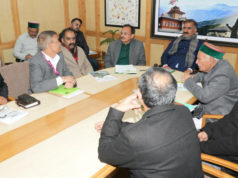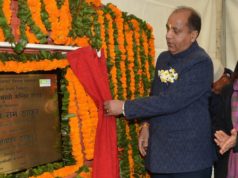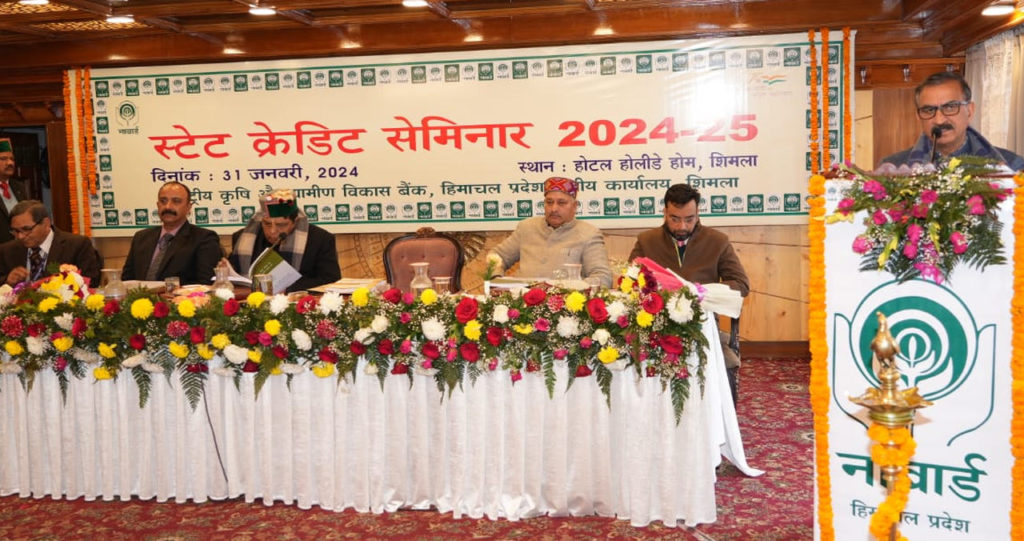
In a significant move aimed at accelerating economic development and uplifting key sectors, the National Bank for Agriculture and Rural Development (NABARD) has introduced a comprehensive credit potential scheme amounting to Rs 34,490 crore. The announcement was made during the inauguration of the State Credit Seminar for the financial year 2024-25 by Himachal Pradesh Chief Minister Sukhvinder Singh Sukhu.
Highlighting the strategic focus of the scheme, Chief Minister Sukhu disclosed that the credit initiative encompasses agriculture, allied activities, MSME, and other priority sectors. This marks an eight percent increase compared to the previous year, signifying NABARD’s commitment to fostering growth in critical areas of the economy.
The Chief Minister, who formally released the ‘NABARD State Focus Paper-2024-25’ during the seminar, urged banks to actively participate in supporting the implementation of various government initiatives. These include the Mukhya Mantri Swablamban Yojana, Mission for Integrated Development of Horticulture, Mukhya Mantri Laghu Shopkeeper Kalyan Yojana, Mukhya Mantri Green Cover Mission, Mukhya Mantri Rojgar Sankalp Seva, Mukhya Mantri Vidyarthi Yojana, and the promotion of start-ups.
Expressing concern over the ‘loan to deposit ratio,’ Chief Minister Sukhu highlighted districts, including Bilaspur, Hamirpur, Kangra, Mandi, Una, Lahaul-Spiti, and Chamba, where the ratio consistently falls below 40 percent. Emphasizing NABARD’s crucial role in making Himachal Pradesh self-reliant, the Chief Minister underscored the challenges posed by climate change and the state’s proactive measures to address them.
Furthermore, Sukhu provided insights into the state’s commitment to environmental sustainability and green initiatives. The adoption of e-vehicles, with plans to replace diesel buses with e-buses, exemplifies the government’s vision to reduce dependence on fossil fuels.
The Chief Minister also highlighted advancements in the Rajiv Gandhi Self-Employment Start-up Scheme, offering a 50 percent subsidy for e-taxis in the first phase. E-charging stations are being established, and the ban on the purchase of petrol and diesel vehicles in government departments from January 1, 2024, reflects the government’s dedication to environmental protection.
In the realm of sustainable energy, the government is spearheading a 32 MW solar power project in Pekhubela, Una district. The second phase of the Rajiv Gandhi Self-Employment Start-up Scheme will assist unemployed youth for setting up solar energy projects. Additionally, a project with Indian Oil Corporation Limited (IOCL) to generate one megawatt green hydrogen is underway.
The Chief Minister concluded by announcing upcoming schemes to strengthen the rural economy and promote natural farming. Notable initiatives include a recent increase in the rate of milk purchase by six rupees and the establishment of a state-of-the-art Rs 250 crore Milk Processing Plant in Kangra district, showcasing the government’s commitment to fostering growth in agricultural and dairy-based industries.


